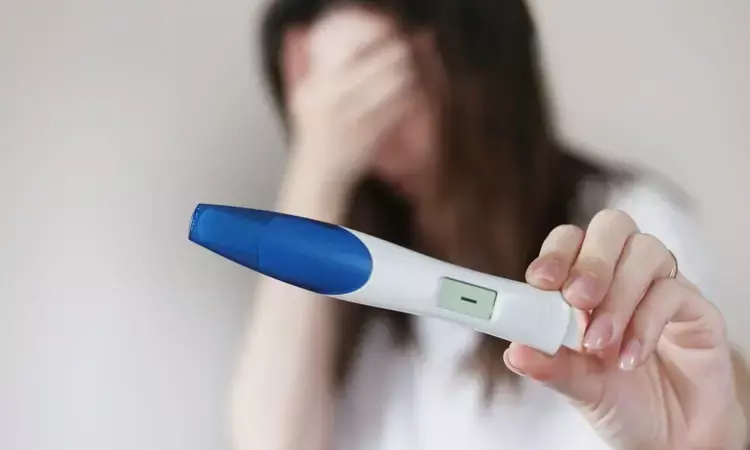- Home
- Medical news & Guidelines
- Anesthesiology
- Cardiology and CTVS
- Critical Care
- Dentistry
- Dermatology
- Diabetes and Endocrinology
- ENT
- Gastroenterology
- Medicine
- Nephrology
- Neurology
- Obstretics-Gynaecology
- Oncology
- Ophthalmology
- Orthopaedics
- Pediatrics-Neonatology
- Psychiatry
- Pulmonology
- Radiology
- Surgery
- Urology
- Laboratory Medicine
- Diet
- Nursing
- Paramedical
- Physiotherapy
- Health news
- Fact Check
- Bone Health Fact Check
- Brain Health Fact Check
- Cancer Related Fact Check
- Child Care Fact Check
- Dental and oral health fact check
- Diabetes and metabolic health fact check
- Diet and Nutrition Fact Check
- Eye and ENT Care Fact Check
- Fitness fact check
- Gut health fact check
- Heart health fact check
- Kidney health fact check
- Medical education fact check
- Men's health fact check
- Respiratory fact check
- Skin and hair care fact check
- Vaccine and Immunization fact check
- Women's health fact check
- AYUSH
- State News
- Andaman and Nicobar Islands
- Andhra Pradesh
- Arunachal Pradesh
- Assam
- Bihar
- Chandigarh
- Chattisgarh
- Dadra and Nagar Haveli
- Daman and Diu
- Delhi
- Goa
- Gujarat
- Haryana
- Himachal Pradesh
- Jammu & Kashmir
- Jharkhand
- Karnataka
- Kerala
- Ladakh
- Lakshadweep
- Madhya Pradesh
- Maharashtra
- Manipur
- Meghalaya
- Mizoram
- Nagaland
- Odisha
- Puducherry
- Punjab
- Rajasthan
- Sikkim
- Tamil Nadu
- Telangana
- Tripura
- Uttar Pradesh
- Uttrakhand
- West Bengal
- Medical Education
- Industry
Vitamin D consumption attenuates association between pesticide exposure and female infertility

China: A recent study published in the journal Clinical Laboratory has demonstrated for the first time that vitamin D may alter the associations of human female infertility with pesticide exposure at home.
The researchers reported a significant association of female infertility with pesticide exposure in the home is modified by the consumption of dietary vitamin D.
Vitamin D is a fat-soluble vitamin that promotes bone mineralization and maintains calcium and phosphorus homeostasis. Recent studies have suggested that vitamin D status may have an impact on pregnancy, fertility and birth outcomes.
Only a few epidemiological studies have shed light on the association between pesticide exposure and female infertility. However, evidence of the available data is restricted and controversial. Vitamin D supplement was considered beneficial for fertility. So, Chunxiu Wu, and colleagues aimed to evaluate the effect of dietary vitamin D consumption on the relationship between pesticide exposure at home and female infertility.
For this purpose, the researchers included 2,968 subjects from the NHANES (National Health and Nutrition Examination Survey), 2011-2018. The daily intake of vitamin D was categorized into two groups high intake (≥ 6 µg/d) and low intake (< 6 µg/d). The relationship between vitamin D intake, pesticide exposure, and female fertility.
The study led to the following findings:
- A significant association was found between household pesticide exposure and infertility based on a fully adjusted model (OR 1.61).
- The relationship between pesticide exposure and in-fertility differed from the low vitamin D intake group (OR 3.96) and high intake group (OR 1.36) and stratified by vitamin D intake.
"A significant association of female infertility with pesticide exposure at home is modified by the consumption of dietary vitamin D," the researchers wrote. "This was the first study to demonstrate that dietary vitamin D may alter associations of human female infertility with pesticide exposure at home."
Reference:
Wu C, Xin X, Chen J. Vitamin D Intake Attenuated the Association between Pesticides Exposure and Female Infertility. Clin Lab. 2023 Sep 1;69(9). doi: 10.7754/Clin.Lab.2023.230201. PMID: 37702693.
Dr Kamal Kant Kohli-MBBS, DTCD- a chest specialist with more than 30 years of practice and a flair for writing clinical articles, Dr Kamal Kant Kohli joined Medical Dialogues as a Chief Editor of Medical News. Besides writing articles, as an editor, he proofreads and verifies all the medical content published on Medical Dialogues including those coming from journals, studies,medical conferences,guidelines etc. Email: drkohli@medicaldialogues.in. Contact no. 011-43720751


